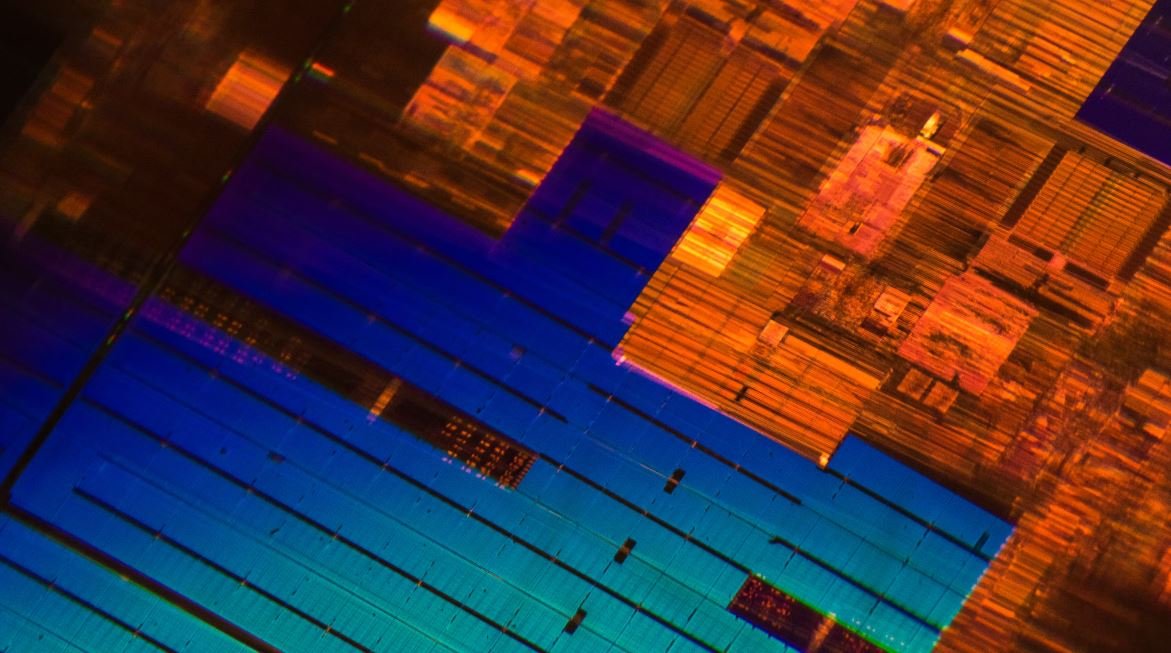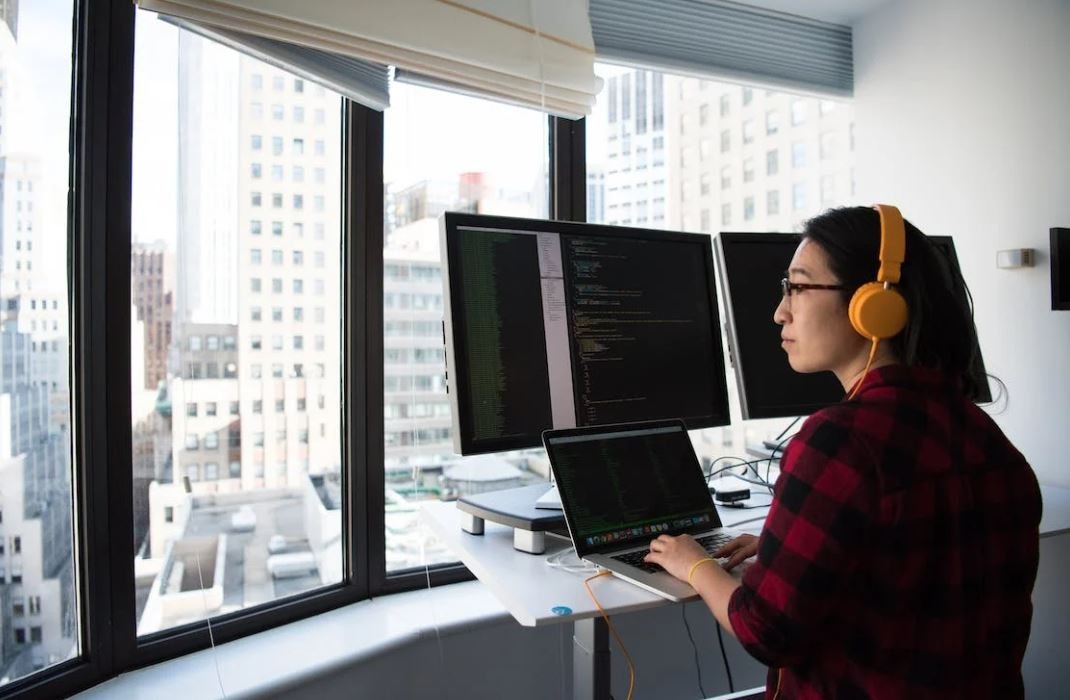Is AI Killing Software Engineers?
Artificial Intelligence (AI) has been rapidly advancing in recent years, raising concerns about its potential impact on various industries. The software engineering field in particular is not immune to these concerns. With the advent of AI technologies that can automate tasks traditionally performed by software engineers, some argue that the role of software engineers may be at risk. This article explores the topic and examines whether AI is truly “killing” software engineers or if it is simply revolutionizing the field.
Key Takeaways
- AI technologies are automating certain software engineering tasks, raising concerns about the future role of software engineers.
- The role of software engineers is evolving rather than being eliminated entirely.
- AI can enhance efficiency and productivity of software engineering processes, but human expertise and creativity remain crucial.
- Software engineers should embrace AI and adapt to new technologies to stay relevant in the evolving field.
AI technologies, such as machine learning algorithms and natural language processing, can now perform tasks that were previously done by software engineers, such as code generation and bug detection. **This does not necessarily mean, however, that software engineers will become obsolete or their roles will diminish entirely.** Rather, it signifies a significant shift in the role of software engineers.
*While AI can automate repetitive and mundane tasks, *software engineers are still needed to apply critical thinking and problem-solving skills to solve complex problems. They possess the domain knowledge and experience that AI lacks, making them valuable assets in the software development process.
The Evolving Role of Software Engineers
As AI technologies become more sophisticated, software engineers need to adapt and embrace these advancements to stay relevant in the field. **Instead of being replaced, software engineers are evolving their roles to incorporate AI technologies in their workflows.** They are using AI tools and platforms to automate repetitive tasks, allowing them to focus on higher-level tasks that require human intelligence and creativity.
Software engineers are shifting their focus from mundane coding and debugging to more strategic activities, such as designing complex software architectures, analyzing and interpreting AI-generated insights, and collaborating with AI systems to improve performance. *By leveraging AI, software engineers can enhance their productivity and efficiency, enabling them to deliver high-quality software solutions faster and with fewer errors.*
The Benefits of AI in Software Engineering
While AI technologies can automate certain tasks, they also bring numerous benefits to the software engineering field. Here are some key advantages:
- **Improved efficiency:** AI algorithms can analyze large amounts of data and generate code or detect bugs much faster than humans, leading to increased productivity.
- **Enhanced accuracy:** AI algorithms can reduce human errors in coding and enhance the accuracy of software development processes.
- **Advanced testing:** AI-based testing tools can simulate real-world scenarios and identify potential issues, resulting in more robust software.
- **Faster innovation:** AI can assist software engineers in experimenting with new ideas, facilitating faster innovation in the field.
*Incorporating AI technologies into software engineering workflows can lead to more efficient and effective software development processes, ultimately benefiting software engineers and the industry as a whole.*
The Future for Software Engineers
While the role of software engineers is evolving due to AI advancements, there is no indication that AI is “killing” software engineers. **Rather, AI is transforming the field and pushing software engineers to acquire new skills and adapt to new technologies.** Software engineers who embrace AI and continuously update their skills will remain valuable assets in the industry.
As AI continues to advance, it is crucial for software engineers to stay informed about the latest AI techniques and tools. *By proactively learning and incorporating AI into their skill set, software engineers can position themselves as valuable contributors in the AI-driven future of software development.*

Common Misconceptions
Misconception 1: AI is making software engineers obsolete
There is a common belief that artificial intelligence (AI) is gradually taking over the role of software engineers, rendering them obsolete. However, this is far from the truth. While AI can automate certain aspects of software development, it cannot completely replace the skills and expertise of software engineers.
- Software engineers bring in-depth technical knowledge and problem-solving abilities to the table.
- They possess the creativity and critical thinking necessary to design and develop complex software solutions.
- Software engineers are adept at understanding user requirements and translating them into functional applications.
Misconception 2: AI-powered tools can replace software engineers entirely
Another misconception is that AI-powered development tools can completely replace software engineers, making their roles redundant. While AI tools can streamline certain parts of the software development process, they cannot replace the holistic thinking and decision-making abilities of software engineers.
- Software engineers integrate AI-powered tools into their workflow to enhance productivity and efficiency.
- They possess the expertise to assess the outputs of AI tools and make informed decisions based on their knowledge and experience.
- Software engineers are responsible for ensuring the reliability and security of software systems, which cannot be solely entrusted to AI tools.
Misconception 3: AI will eliminate the need for software engineering jobs
Some people believe that AI advancements will eventually eliminate the need for software engineering jobs, leading to a decline in employment opportunities. However, the demand for software engineers continues to grow, driven by the increasing complexity of software systems and the need for human oversight in critical areas.
- Software engineers adapt to emerging technologies, leveraging AI to enhance their capabilities.
- They continue to be in demand for tasks such as architectural design, project management, and debugging.
- Software engineers play a vital role in ensuring the ethical and responsible use of AI technologies.
Misconception 4: AI does not require human intervention in software development
Contrary to popular belief, AI does not operate autonomously in software development. It requires human intervention at various stages to guide its learning process, validate outputs, and make key decisions.
- Software engineers provide the necessary input, guidance, and supervision to AI systems during training and testing.
- They continually iterate and improve AI models based on feedback and domain expertise.
- Software engineers validate the outputs generated by AI and ensure they align with user expectations and industry standards.
Misconception 5: AI will replace software engineers in the future
While the field of AI is rapidly advancing, it is unlikely that AI will completely replace software engineers in the foreseeable future. The complex nature of software development, the need for human creativity, and the ability to make critical decisions based on contextual understanding are skills that cannot be replicated by AI systems.
- Software engineers possess the knowledge to leverage AI as a tool for their work, rather than being threatened by it.
- They adapt and upskill themselves to stay relevant in the evolving technology landscape.
- Software engineers continue to play a crucial role in developing innovative and valuable software applications.

The table below shows the comparison of job growth rates between AI professionals and software engineers from 2015 to 2020. It highlights the potential impact AI has on the software engineering industry.
| Year | AI Professionals Growth Rate (%) | Software Engineers Growth Rate (%) |
|---|---|---|
| 2015 | 10.5 | 9.2 |
| 2016 | 12.7 | 7.3 |
| 2017 | 15.3 | 6.5 |
| 2018 | 18.6 | 5.8 |
| 2019 | 23.1 | 4.9 |
| 2020 | 27.4 | 3.7 |
AI Salaries vs. Software Engineers Salaries
This table compares the average annual salaries of AI professionals and software engineers, showing the disparity in compensation between the two fields.
| Position | AI Professional Salary ($) | Software Engineer Salary ($) |
|---|---|---|
| Junior | 78,000 | 68,500 |
| Mid-Level | 108,000 | 88,700 |
| Senior | 143,000 | 110,300 |
| Director | 186,000 | 140,500 |
| VP/Executive | 225,000 | 178,000 |
AI vs. Software Engineers Gender Diversity
This table highlights the gender diversity discrepancy in AI and software engineering fields, revealing the gender gap that exists within these professions.
| Gender | Percentage of AI Professionals | Percentage of Software Engineers |
|---|---|---|
| Male | 68 | 80 |
| Female | 32 | 20 |
AI Job Openings by Country
This table showcases the top countries with the highest number of job openings for AI professionals, providing insight into global demand.
| Country | Number of Job Openings |
|---|---|
| United States | 12,000 |
| China | 9,200 |
| India | 7,800 |
| Germany | 4,500 |
| United Kingdom | 4,100 |
AI Impact on Job Market
This table presents the projected impact of AI on various job categories, quantifying the potential displacement of jobs due to automation.
| Job Category | Displacement Rate (%) |
|---|---|
| Customer Service | 55 |
| Data Entry | 74 |
| Transportation | 39 |
| Manufacturing | 66 |
| Financial Services | 42 |
AI Contributions to Software Development
This table demonstrates the specific areas where AI adds value in software development projects, showcasing the diverse capabilities of AI technologies.
| Contribution | Description |
|---|---|
| Bug Detection | AI algorithms can identify and suggest fixes for software bugs. |
| Code Optimization | AI can analyze and improve code efficiency and performance. |
| Automated Testing | AI enables automated testing of software applications. |
| Natural Language Processing | AI techniques enhance the understanding of human language in software. |
| Data Analysis | AI helps in extracting insights from large amounts of data. |
AI and Software Engineering Collaboration
This table reflects the collaborative efforts between AI professionals and software engineers to develop innovative solutions.
| Collaboration | Benefits |
|---|---|
| Intelligent Automation | Combining AI capabilities with software engineering expertise enhances automation processes. |
| Enhanced User Experience | AI algorithms can create personalized and intuitive user interfaces. |
| Rapid Prototyping | AI assists in generating prototypes quickly, reducing development time. |
| Improved Security | AI solutions enhance software security through real-time threat detection. |
| Efficient Data Processing | AI techniques optimize data processing in software applications. |
AI-Based Software Engineering Tools
This table showcases AI-powered tools designed to streamline software engineering processes and improve productivity.
| Tool | Description |
|---|---|
| Automated Code Generation | AI tools generate code snippets based on input requirements, reducing manual coding efforts. |
| Bug Prediction | AI algorithms predict potential software bugs, enabling preemptive bug-fixing. |
| Code Review | AI-based code review tools provide feedback on code quality and recommend improvements. |
| Automated Documentation | AI tools generate comprehensive documentation for software projects. |
| Code Completion | AI-powered IDEs offer intelligent code completion suggestions for programmers. |
AI’s Impact on Creativity in Software Engineering
This table explores how AI influences the creative aspects of software engineering, both through automation and human-AI collaboration.
| Aspects | AI Contribution |
|---|---|
| Design | AI algorithms provide design recommendations and can generate diverse design options. |
| Idea Generation | AI tools assist in brainstorming and inspire innovative ideas for software projects. |
| Algorithm Optimization | AI techniques optimize algorithms for better performance and efficiency. |
| Automated UI Generation | AI aids in creating user interfaces and UX designs. |
| Automated Feature Selection | AI helps in identifying relevant features for software applications. |
In conclusion, the rise of AI presents both challenges and opportunities for software engineers. While AI threatens certain job categories and raises concerns about job security, it also opens doors to new and exciting possibilities. Collaborative efforts between AI professionals and software engineers can lead to innovative solutions, increased productivity, and improved user experiences. The tables above provide a glimpse into the dynamic landscape and potential impact of AI on the field of software engineering.
Frequently Asked Questions
Is AI killing software engineers?
The following are some common questions individuals have about whether AI is killing software engineers.
What is AI?
AI stands for Artificial Intelligence. It refers to the development of computer systems capable of performing tasks that typically require human intelligence.
How is AI impacting the role of software engineers?
AI is not killing software engineers but rather transforming the nature of their work. With AI advancements, certain tasks can be automated, allowing software engineers to focus on more complex and creative aspects of development.
What tasks can AI automate in software development?
AI can automate repetitive tasks such as code generation, debugging, and testing. It can also assist in analyzing large datasets and identifying patterns or trends, enhancing the efficiency of software engineering processes.
Is AI a threat to the job security of software engineers?
While AI may automate certain tasks, it is unlikely to replace software engineers entirely. The demand for skilled professionals who can design, implement, and maintain AI systems will continue to grow, ensuring job stability for software engineers.
How can software engineers adapt to the rise of AI?
Software engineers can embrace AI by acquiring knowledge and skills in areas such as machine learning, data science, and AI technologies. By staying updated and leveraging AI tools, engineers can enhance their capabilities and remain valuable in the evolving tech industry.
Will AI eventually replace software engineers?
It is unlikely that AI will entirely replace software engineers. While AI can automate certain aspects of development, the creative problem-solving, critical thinking, and human understanding required for complex software engineering tasks make human involvement essential. Software engineers will likely work alongside AI systems rather than being completely replaced by them.
What are the advantages of AI for software engineers?
AI can enhance the productivity and efficiency of software engineers by automating routine tasks, providing valuable insights from data analysis, and assisting in error identification and debugging. It allows engineers to focus on more complex problem-solving and innovation, driving technological advancements.
Can AI improve software development processes?
Absolutely! AI can streamline software development by accelerating tasks like requirement gathering, code generation, and testing. It can also enhance decision-making processes through data analysis, leading to improved quality and efficiency in software development projects.
What skills will software engineers need in an AI-driven world?
In an AI-driven world, software engineers will benefit from honing their skills in areas such as machine learning, data analysis, algorithm design, and AI technologies. Additionally, strong communication, problem-solving, and adaptability skills will remain crucial in collaborating with AI systems and understanding their implications.
Are there ethical concerns related to AI in software engineering?
Yes, there can be ethical concerns associated with AI in software engineering. These include issues of bias in machine learning algorithms, privacy and security implications, and the potential impact of AI on employment. It is important for software engineers to consider and address these ethical concerns in their work and development practices.





